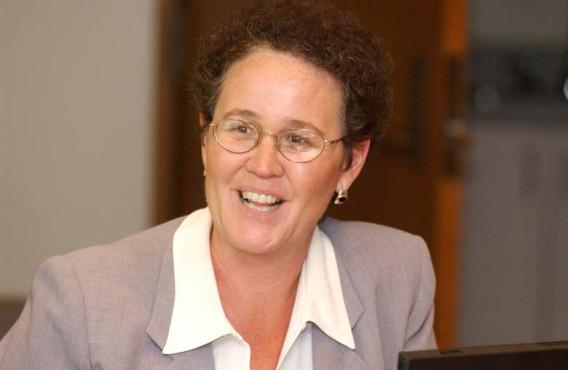
Linda Darling-Hammond's new think tank taps Stanford alumni and faculty expertise
Stanford education professor emerita Linda Darling-Hammond has a new project — and it comes in the form of a think tank.
Darling-Hammond, the Charles E. Ducommun Professor of Education, Emerita, aims to cultivate education policies nationwide with the recent launch of the Learning Policy Institute. With offices in Palo Alto and Washington, D.C., the institute will connect research and policy in innovative and collaborative ways, with an emphasis on turning knowledge into action.
“It is time to get serious about how to support and enable our education system to respond to the massive changes in learning that some other nations’ systems have been addressing more systemically, with much better results, over the last two decades,” Darling-Hammond wrote in the Huffington Post on Sept. 3. She will serve as president and CEO of the organization.
In an article about the announcement, Edsource reports that the Institute has an initial budget of $5 million and is aiming to hire 30 to 50 people.
The group draws a number of its research staff members from alumni of Stanford Graduate School of Education, including Patrick Shields, who will serve as the institute’s executive director after 20 years overseeing the education research center at SRI International; senior researchers Channa Cook-Harvey and Maria Hyler; senior policy advisor Tara Kini; principal research manager Marjorie Wechsler; research and policy associate Madelyn Gardner; and researcher and policy analyst Anne Podolsky.
It also includes Stanford Graduate School of Education faculty as senior research fellows: Brigid Barron, Prudence Carter, Roy Pea, Sean Reardon, Deborah Stipek and Guadalupe Valdés, as well as emeritus professors Richard Shavelson, Lee Shulman and Marshall (Mike) Smith.
Stanford education professor David Plank told Edsource that the institute’s “biggest asset will be Linda.” He added, “Linda is uniquely engaged at the highest levels of California and Washington, with a direct line to those making policy decisions so she is in a unique position to make research matter.”
Author of more than a dozen books and several hundred articles, Darling-Hammond is chair of California's teaching credentialing commission and served in 2008 as the leader of Barack Obama's education transition team. She is consistently ranked first or second in an annual ranking of university scholars who influence education policy.
She envisions the think-tank as "transpartisan,” and says, “together we can develop pragmatic, evidence-based solutions that can address the complex realities facing public schools and their communities.”
She explained that in a fast-changing, knowledge-based society, the pressing challenge is to give students the right tools and educational experiences early on — and research is the key. “All children need to be able to inquire deeply, think critically, communicate and collaborate to solve challenging problems,” she said.
In her blog on The Huffington Post, she added:
We plan to focus on pressing policy questions and seek useful evidence by organizing and synthesizing previous research and commissioning new studies that are designed to answer those questions. Equally important, we will translate research and analysis so that it is accessible and digestible for policymakers and others working to shape policies and practices that enable each and every child to learn, think and thrive.
It's become clear to many that fighting old, divisive battles over last century's educational models won't prepare our children for the new world they face.
Clifton Parker, a writer for Stanford News Service, wrote an earlier version of this story for The Dish column in Stanford Report. Additional material was added by Jonathan Rabinovitz, chief communications officer at Stanford Graduate School of Education.



